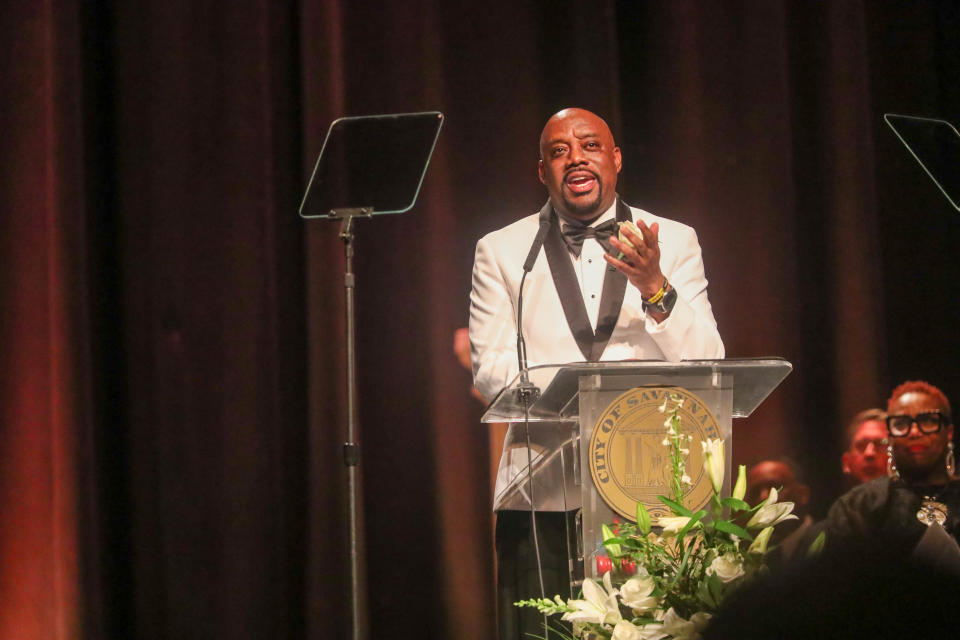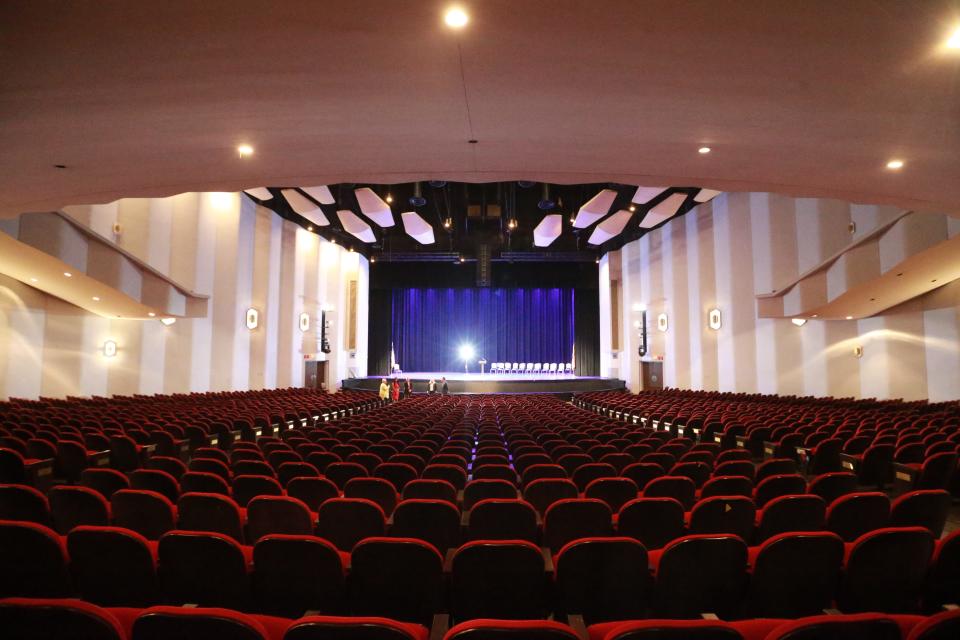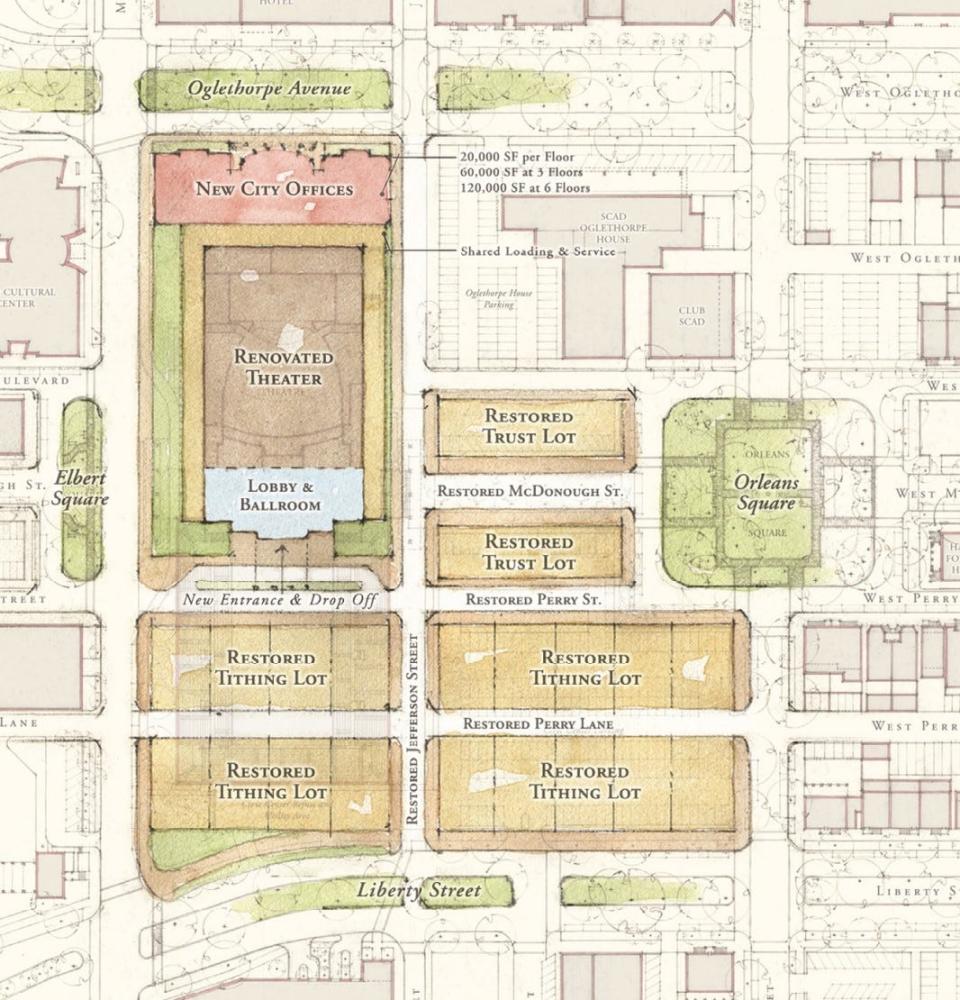Theater stays, arena razed. Savannah council adopts "even-handed" plan for Civic Center future

At his second inauguration in early January, Savannah Mayor Van Johnson set a goal of three to six months for council action on major city projects waiting for direction. At the top of that list was deciding the future of the Savannah Civic Center site, comprised of the Johnny Mercer Theatre and Martin Luther King Jr. Arena.
Six months later, City Council marked its way forward with support of a plan first presented in 2022: keep and renovate the Mercer Theatre while demolishing the MLK Jr. Arena. The path was chosen by a 7-1 vote. District 1 Alderwoman Bernetta Lanier was the sole lone vote. Alderwoman At-large Alicia Blakely was away, attending a conference.
"This was the best decision we could make at this time," Johnson said. "It's probably the most even-handed, thoughtful approach that gives consideration to our past and to our future."

Two other resolutions were up for consideration: one to keep and renovate the entire complex, including the arena, and another to raze the complex and build a new theater at an alternate site. Those options had cost estimates of $135-$165 million and $130-$160 million, respectively.
The path chosen by council has a cost estimate of $90-$120 million, with about $60 million of that devoted to a Mercer Theatre renovation. The vote for renovation marked a win for many in Savannah's arts community with organizations such as the Savannah Music Festival and Savannah Philharmonic long advocating for renovating the Mercer.
"It's incredible to see the performing arts being supported, and also (see) what the arts mean to the community," said Amy Williams, executive director of the Savannah Philharmonic.

The lone no vote Thursday was District 1 Alderwoman Bernetta Lanier. Lanier opposed the chosen resolution because the MLK Jr. arena still has community uses, and a plan to recreate a space for those opportunities was not clear, she said.
City leaders such as Johnson and City Manager Jay Melder have emphasized that Thursday's vote was the first step in a series of decisions that will dictate the future uses of the site. The resolution approved by council will open new areas for development and an "infill site" on the Mercer Theatre's north end, fronting Oglethorpe Avenue, could also be used to create a "purpose-built building," Melder said.
The resolution included numerous items, such as prioritizing housing on the site, prohibiting hotel development, restricting short-term rentals, and satisfying parking needs. Downtown Neighborhood Association President David Mcdonald said he hopes to see those elements implemented.
"We want to see movement, we want to see restoration of some residential community, homes and mixed-use," McDonald said.
The resolution also included an item to retain the name and legacy of MLK Jr. on the site.

Andrew Jones, president of the Oglethorpe Plan Coalition, which advocated for full demolition of the Civic Center, said discussion around a theater alternative was misleading. The city had not yet officially identified an alternative theater location if the Mercer were to be demolished.
However, Jones and others shared a potential alternative during public comment that was not mentioned in discussion. The location shared was at the Visitor's Center parking lot off Martin Luther King Jr. Boulevard.
"The decision was made on the basis of inaccurate information," Jones said.
The next step will be for the city to issue a Request for Information, which Melder said will allow him to provide council with an array of options for the site's use. From there, the city would invite those with the best ideas to respond to a Request for Proposals.
"Do not let this sit"

The plan to restore the Mercer Theatre while demolishing the arena was first floated in 2022 by local architecture firm Sottile and Sottile. That plan was presented to City Council during a workshop that year and served as the basis for the city's public engagement on the project held this year.
That plan was a departure from the Urban Land Institute plan adopted in 2019 by a different council administration. The ULI report was the plan that first recommended demolition of the entire complex in favor of Oglethorpe Plan restoration and private redevelopment.
Three current council members ― Johnson, Alderwoman Carol Bell, and Alderwoman Estella Shabazz ― served on the council that adopted the ULI plan, and each one chose a different route Thursday. All offered reasoning for their new position.
Bell said the city's cost estimates and public input were a major influence in her changed position. Shabazz said public input and an acoustics report on potential renovations for the theater contributed to her new vote. Johnson said the ULI study was not as comprehensive as the options council considered this year, while also emphasizing the need for a theater the size of the Mercer.
"When you know better, you do better," Johnson said. "When you have more information, you make different decisions."

Johnson also said the "clock ran out" on the ULI report. Two years also passed between the initial presentation of the Sottile and Sottile plan and council's vote Thursday.
Immediately after council approved the resolution, Johnson issued a charge to Melder: "Mr. Manager, do not sit on this."
Johnson would go on to acknowledge the clock was ticking and pledged for the work to continue.
"The clock will not run out on this administration."
Evan Lasseter is the city and county reporter for the Savannah Morning News. You can reach him at [email protected].
This article originally appeared on Savannah Morning News: Savannah City Council adopts "even-handed" plan for Civic Center future